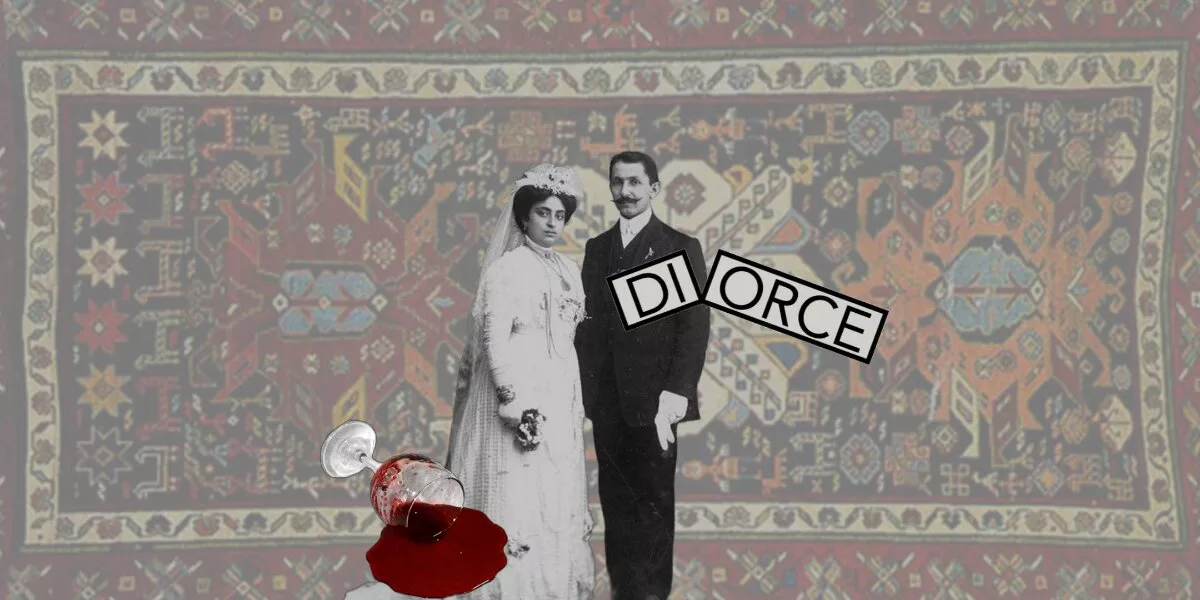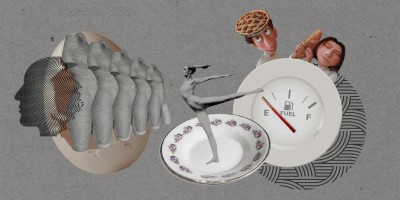
While love can be a beautiful and meaningful feeling, it does not necessarily guarantee a lifelong, successful marriage. It is up to each individual to work towards building a healthy and fulfilling relationship, regardless of their cultural background or identity.
In 2018, according to statistics, the divorce rate in Armenia was 25.77 per 100 marriages. Divorce rates are affected by many factors, including cultural and societal norms, economic conditions, and personal circumstances.
Armenians have always valued the non-fleeting value of traditions, which does have its good sides; the hearty New Year’s tables are already an indicator, so are the traditional dances, the sweet honey-feeding at weddings, and of course, the hospitable, close customs that leave the tourists fascinated.
If we look at the other side of the coin, in many cases, some families find the term “privacy” ridiculous and stand by traditions. Some brides live with five kids, both in-laws, the husband’s grandparents, maybe an aunty or two, have long forgotten the sweetness of privacy, sometimes even “encouraged” to accept things as they are, as a “perfect” wife should. For the bride, this no longer feels like her own home anymore now, does it?
While traditional family values and close-knit families can bring warmth and happiness to a home, some aspects of certain cultures may pose challenges for individuals and their relationships.
For example, some brides may experience a lack of privacy due to the presence of numerous family members. While this can be somewhat tolerable, other insufferable pressures of traditions and strict rules can sometimes lead to challenges in the marriage.
There may be rules and expectations that can be difficult to navigate, such as the belief that a wife is inferior to her husband or limitations on naming children according to personal preference. Additionally, some cultural norms may restrict behavior, such as the belief that a woman should not smile at another man.
It is essential to approach these issues with sensitivity and an open mind while also respecting the beliefs of others. Ultimately, every individual and relationship is unique, and it is up to each person to find a balance that works for them and their loved ones.
Another ridiculous tradition is Karmir Khntsor, a cultural practice in Armenia that polices a bride’s virginity. This tradition has been criticized for perpetuating harmful and unrealistic expectations about women’s sexuality and reinforcing the idea that a woman’s worth is tied to her virginity.
It can also lead to negative consequences for women who are not virgins on their wedding night, such as being shamed or ostracized by their community or even experiencing violence.
While the tradition may hold cultural significance for some individuals and families, it is vital to approach it with sensitivity and respect for the choices and experiences of all individuals involved.
Of course, by simple logic, such situations are not always found in all marriages; many Armenians can be very loving and will not let the past ruin family values: respectful, understanding and honest love. But even the thought of such pressures is enough to scare any future bride or husband to the extent that they eventually give up as they become convinced that a proper marriage is tiresome and draining.
“In Armenia, the standards of relationships and marriages have not changed that much because our society is very traditionalist and loyal to its customs,’’ says Hayguhi Stepanyan, a sophomore studying Tourism and Culture at Brusov. While some people believe that change is necessary, others may hold different opinions based on their personal beliefs and experiences.
Some families focus more on marriage’s values, such as being understanding, disciplined in challenging matters, and the ability to accept a win-lose situation if both parties cannot compromise.
With a good balance, these all lead to a healthy and well-kept marriage that any in-law would gush for, granted if they add to those values by respecting that marriage is not, and should not be, as it was before.
Not all marriages feel like a life sentence than a loving union, as people–young adults and elders– are growing warrier regarding such issues. We should let go of beliefs and behaviours from the past that have caused suffering for generations of Armenians. Instead, we should strive to promote positive qualities like generosity, peace, and honest love, which portray Armenians as passionate and supportive of one another.











